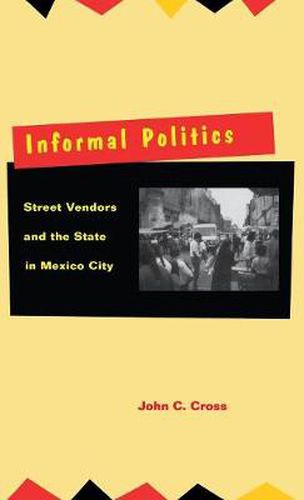Readings Newsletter
Become a Readings Member to make your shopping experience even easier.
Sign in or sign up for free!
You’re not far away from qualifying for FREE standard shipping within Australia
You’ve qualified for FREE standard shipping within Australia
The cart is loading…






As economic crises struck the Third World in the 1970 s and 1980 s, large segments of the population turned to the informal economy to survive. Though this phenomenon has previously been analyzed from a strictly economic point of view, this book looks at street vending in the largest city in the world, Mexico City, as a political process. Employing a street-level analysis based on intensive participant observation, with interviews, archival research, and surveys, the author presents a view of political processes that provides new theoretical insights into social movements, state institutions, and politics at the fringe of society, where legality blurs into illegality and the informal economy intersects with its political counterpoint informal politics. By studying political processes at the street level and then tracing them up the political structure, the author also reveals the basic processes by which the Mexican state operates.
$9.00 standard shipping within Australia
FREE standard shipping within Australia for orders over $100.00
Express & International shipping calculated at checkout
As economic crises struck the Third World in the 1970 s and 1980 s, large segments of the population turned to the informal economy to survive. Though this phenomenon has previously been analyzed from a strictly economic point of view, this book looks at street vending in the largest city in the world, Mexico City, as a political process. Employing a street-level analysis based on intensive participant observation, with interviews, archival research, and surveys, the author presents a view of political processes that provides new theoretical insights into social movements, state institutions, and politics at the fringe of society, where legality blurs into illegality and the informal economy intersects with its political counterpoint informal politics. By studying political processes at the street level and then tracing them up the political structure, the author also reveals the basic processes by which the Mexican state operates.